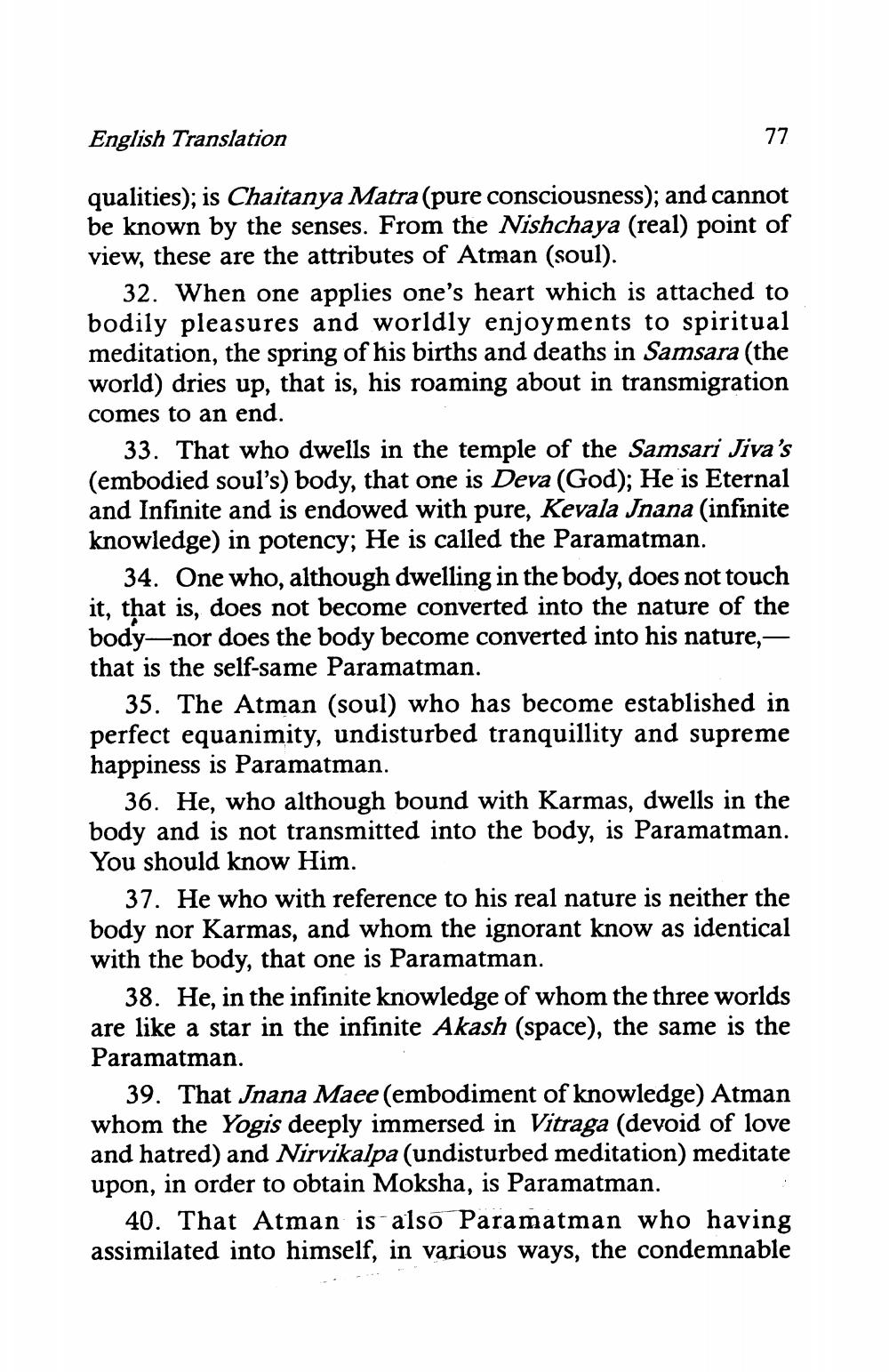________________
English Translation
77
qualities); is Chaitanya Matra (pure consciousness); and cannot be known by the senses. From the Nishchaya (real) point of view, these are the attributes of Atman (soul).
32. When one applies one's heart which is attached to bodily pleasures and worldly enjoyments to spiritual meditation, the spring of his births and deaths in Samsara (the world) dries up, that is, his roaming about in transmigration comes to an end.
33. That who dwells in the temple of the Samsari Jiva's (embodied soul's) body, that one is Deva (God); He is Eternal and Infinite and is endowed with pure, Kevala Jnana (infinite knowledge) in potency; He is called the Paramatman.
34. One who, although dwelling in the body, does not touch it, that is, does not become converted into the nature of the body—nor does the body become converted into his nature,that is the self-same Paramatman.
35. The Atman (soul) who has become established in perfect equanimity, undisturbed tranquillity and supreme happiness is Paramatman.
36. He, who although bound with Karmas, dwells in the body and is not transmitted into the body, is Paramatman. You should know Him.
37. He who with reference to his real nature is neither the body nor Karmas, and whom the ignorant know as identical with the body, that one is Paramatman
38. He, in the infinite knowledge of whom the three worlds are like a star in the infinite Akash (space), the same is the Paramatman.
39. That Jnana Maee (embodiment of knowledge) Atman whom the Yogis deeply immersed in Vitraga (devoid of love and hatred) and Nirvikalpa (undisturbed meditation) meditate upon, in order to obtain Moksha, is Paramatman.
40. That Atman is also Paramatman who having assimilated into himself, in various ways, the condemnable




